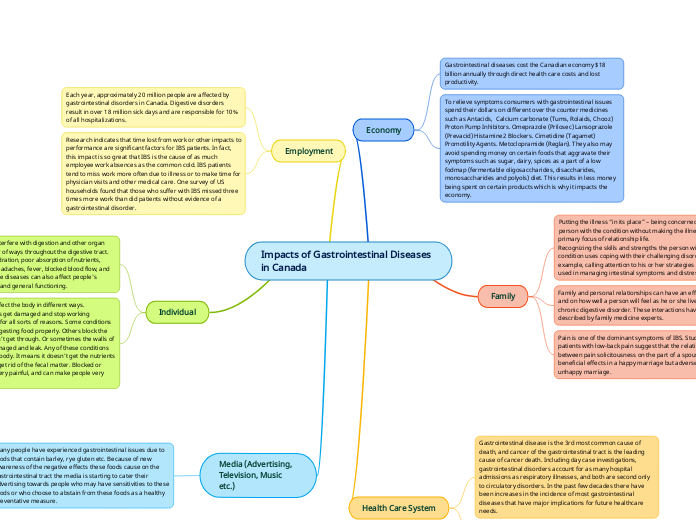von N P Vor 3 Jahren
281
Impacts of Gastrointestinal Diseases in Canada
Chronic gastrointestinal diseases significantly impact individuals and their families, influencing personal relationships and overall well-being. Family medicine experts emphasize the importance of balancing concern for the person with the illness without letting it dominate the relationship, and recognizing the coping skills and strengths of those affected.









